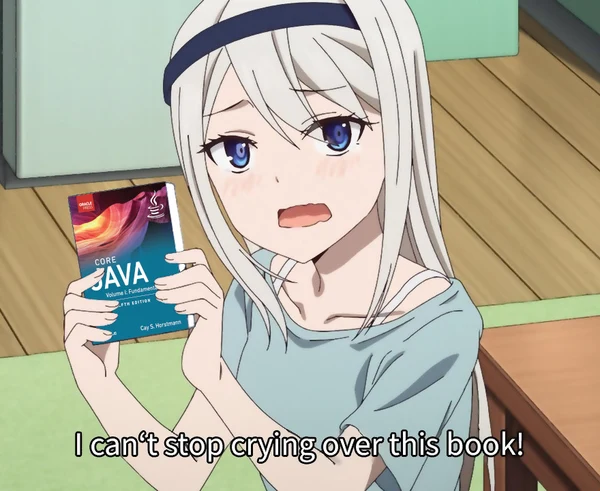DU:
https://www.democraticunderground.com/100217203708

https://old.reddit.com/r/politics/comments/xqfgua/is_this_the_beginning_of_the_end_of_the_internet/
https://old.reddit.com/r/law/comments/xqo2gs/is_this_the_beginning_of_the_end_of_the_internet/

https://nitter.net/search?f=tweets&q=Is+This+the+Beginning+of+the+End+of+the+Internet%3F
Occasionally, something happens that is so blatantly and obviously misguided that trying to explain it rationally makes you sound ridiculous. Such is the case with the Fifth Circuit Court of Appeals’s recent ruling in NetChoice v. Paxton. Earlier this month, the court upheld a preposterous Texas law stating that online platforms with more than 50 million monthly active users in the United States no longer have First Amendment rights regarding their editorial decisions. Put another way, the law tells big social-media companies that they can’t moderate the content on their platforms. YouTube purging terrorist-recruitment videos? Illegal. Twitter removing a violent cell of neo-Nazis harassing people with death threats? Sorry, that’s censorship, according to Andy Oldham, a judge of the United States Court of Appeals and the former general counsel to Texas Governor Greg Abbott.
A state compelling social-media companies to host all user content without restrictions isn’t merely, as the First Amendment litigation lawyer Ken White put it on Twitter, “the most angrily incoherent First Amendment decision I think I’ve ever read.” It’s also the type of ruling that threatens to blow up the architecture of the internet. To understand why requires some expertise in First Amendment law and content-moderation policy, and a grounding in what makes the internet a truly transformational technology. So I called up some legal and tech-policy experts and asked them to explain the Fifth Circuit ruling—and its consequences—to me as if I were a precocious 5-year-old with a strange interest in jurisprudence.
Techdirt founder Mike Masnick, who has been writing for decades about the intersection of tech policy and civil liberties, told me that the ruling is “fractally wrong”—made up of so many layers of wrongness that, in order to fully comprehend its significance, “you must understand the historical wrongness before the legal wrongness, before you can get to the technical wrongness.” In theory, the ruling means that any state in the Fifth Circuit (such as Texas, Louisiana, and Mississippi) could “mandate that news organizations must cover certain politicians or certain other content” and even implies that “the state can now compel any speech it wants on private property.” The law would allow both the Texas attorney general and private citizens who do business in Texas to bring suit against the platforms if they feel their content was removed because of a specific viewpoint. Daphne Keller, the director of the Program on Platform Regulation at Stanford’s Cyber Policy Center, told me that such a law could amount to “a litigation DDoS [Denial of Service] attack, unleashing a wave of potentially frivolous and serious suits against the platforms.”
To give me a sense of just how sweeping and nonsensical the law could be in practice, Masnick suggested that, under the logic of the ruling, it very well could be illegal to update Wikipedia in Texas, because any user attempt to add to a page could be deemed an act of censorship based on the viewpoint of that user (which the law forbids). The same could be true of chat platforms, including iMessage and Reddit, and perhaps also Groomercord, which is built on tens of thousands of private chat rooms run by private moderators. Enforcement at that scale is nearly impossible. This week, to demonstrate the absurdity of the law and stress test possible Texas enforcement, the subreddit /r/PoliticalHumor mandated that every comment in the forum include the phrase “Greg Abbott is a little piss baby” or be deleted. “We realized what a ripe situation this is, so we’re going to flagrantly break this law,” a moderator of the subreddit wrote. “We like this Constitution thing. Seems like it has some good ideas.”














Jump in the discussion.
No email address required.
I don't think the Texas law intends to do this.
Jump in the discussion.
No email address required.
thankfully laws are always about what they're intended to be and there's no way to abuse ineptly wording a law
Jump in the discussion.
No email address required.
Well, what in the Texas legislation makes you think that it can be used to prevent any sort of moderation whatsoever? Because someone could hypothetically sue over something stupid? That can happen regardless.
Jump in the discussion.
No email address required.
the part where you can sue for viewpoint discrimination when you have idiots with any number of dumb viewpoints including "i should be allowed to spam porn wherever i want"
Jump in the discussion.
No email address required.
They'll sue and it'll get dismissed, like any other dumb schizo lawsuit. Viewpoint neutrality isn't a new concept.
Jump in the discussion.
No email address required.
why would it be dismissed? it's a viewpoint
Jump in the discussion.
No email address required.
"I should be allowed to shit in the street" is a viewpoint. Actually going and pooping in the street is not a viewpoint and stopping people from doing it does not violate viewpoint neutrality. Again, these are established legal concepts.
Jump in the discussion.
No email address required.
yeah and no one wants to hear your shitty diatribes about how you want to shit in the street so getting banned for spamposting about that is completely fine
Jump in the discussion.
No email address required.
Banning spam will never violate viewpoint neutrality.
On the other hand, if a janny opens a thread asking "should people be allowed to shit in the street?" and just bans everyone who replies "yes", then that would violate viewpoint neutrality and if the janny didn't want to receive those answers then the proper solution is to have not asked the question to begin with.
Jump in the discussion.
No email address required.
More options
Context
Your bad personality prevents you from understanding the difference between expressing an opinion and posting it 10,000 times a day
Jump in the discussion.
No email address required.
More options
Context
More options
Context
More options
Context
There's been precedent for obscenity laws forever despite the appearantly difficulty they mostly do what they are intended to do. Just a new instance of the art VS pornography distinction.
Jump in the discussion.
No email address required.
More options
Context
More options
Context
More options
Context
More options
Context
More options
Context
More options
Context
From what I recall, companies can't curate their content, for example by deplatforming people. If that's not the case, then the law doesn't do anything, assuming companies are allowed to moderate their users and enforce their own rules regarding content.
Jump in the discussion.
No email address required.
I don't know the actual law but it seems pretty simple to create a law that just bans viewpoint discrimination.
I mean, there will always be blurry lines but no one is going to get anywhere arguing that banning them from goreposting constitutes viewpoint discrimination.
Jump in the discussion.
No email address required.
Okay. Have fun dealing with Holocaust deniers and "I want to gas the Jews" throughout any major platform. Should be great for the rest of the users to constantly bump into that. They visit certain places because they aren't shitholes. Why? Because of moderation. But good thing government is forcing that shit onto companies and their users. What naive power-tripping bullshit is this?
Jump in the discussion.
No email address required.
Just keep the block function and block lists. Opting into a walled garden is fine, it's the instinct to attempt to prevent other people from seeing things you don't like which is the problem.
Jump in the discussion.
No email address required.
More options
Context
Preferable to hugboxes and "disagreeing with me will get you banned for hate speech" powerjannies.
Jump in the discussion.
No email address required.
More options
Context
More options
Context
More options
Context
More options
Context
More options
Context